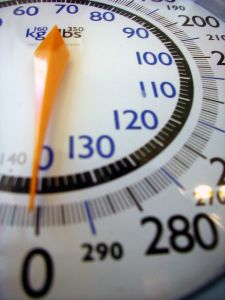 Body Mass Index (BMI)
Body Mass Index (BMI)

To calculate your BMI select your correct weight and height and let the LincsMag BMI calculator do the rest.
LincsMag BMI Calculator |
Please note that the NHS says that a BMI measurement is not as accurate if you're an athlete or very muscular (muscle weighs more than fat) as this can push you into a higher BMI category even if you have a healthy level of body fat. It's also not accurate for women who are pregnant or breastfeeding, or people who are frail.
The BMI weight ranges, as set out by the World Health Organisation (WHO), are outlined below.
- If your BMI is less than 18.4, you're underweight for your height.
- If your BMI is between 18.5 and 24.9, you're an ideal weight for your height.
- If your BMI is between 25 and 29.9, you're over the ideal weight for your height.
- If your BMI is between 30 and 39.9, you're obese.
- If your BMI is over 40, you're very obese.
- If you have a BMI of over 25, you need to think about losing weight because you have an increased risk of developing serious health problems, such as heart disease, diabetes, and several forms of cancer.
- If your BMI is over 30, you need to make some immediate changes to your lifestyle in order to lose weight. NHS Direct can provide you with advice about how to lose weight safely, but you should also make an appointment to see your GP.
If you know your height and weight, you can work out which weight range you're in using the simple steps outlined below.
Take your weight in kilograms (kg) and divide it by your height in metres (m).
Then divide the result by your height in metres (m) again.
For example, if you weigh 70kg, and you're 1.75m tall, your BMI would be 22.9 (70/1.75 = 40 and 40/1.75 = 22.9).
Please Note:
This is general advice for adults only - it doesn't apply to children.
When you work out your BMI, remember to take into account your body frame and your build - your BMI may not be accurate. For example, your BMI may not be accurate if you're a weight-trainer, an athlete, or if you're pregnant, or breastfeeding.
Your BMI may not be accurate if you're over the age of 60. This is because your bones may begin to weigh less as you get older.
If you have a long-term health condition, talk to your GP before starting any weight-loss programme.
Talk to your GP if you have noticeably lost, or gained, weight recently for no known reason.
Source: NHS